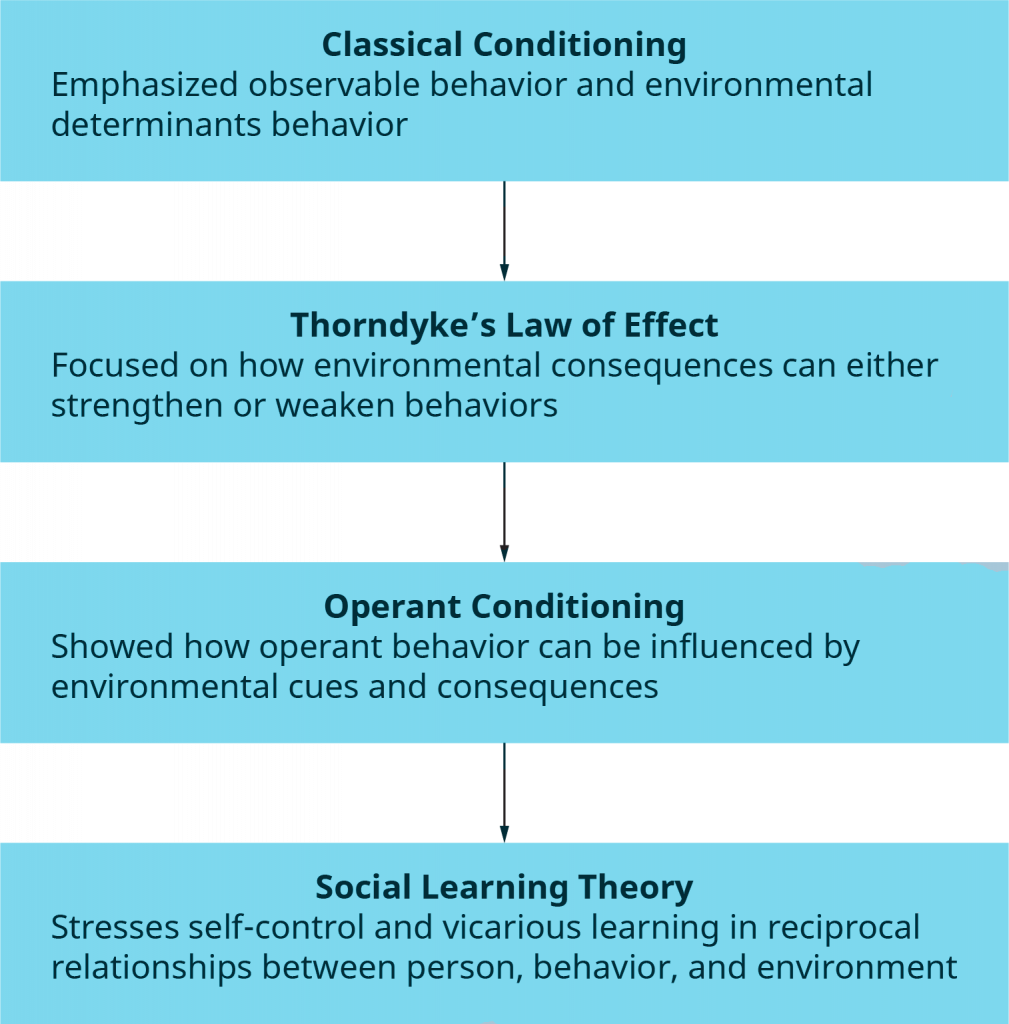5.1 Learning
That is, a person is said to have learned something when they consistently exhibit a new behavior over time. Several aspects of this definition are noteworthy (Spielman et al., 2015). First, learning involves a change in an attitude or behavior. This change does not necessarily have to be an improvement, however, and can include such things as learning bad habits or forming prejudices. In order for learning to occur, the change that takes place must be relatively permanent. So changes in behavior that result from fatigue or temporary adaptation to a unique situation would not be considered examples of learning. Next, learning typically involves some form of practice or experience. For example, the change that results from physical maturation, as when a baby develops the physical strength to walk, is in itself not considered learning. Third, this practice or experience must be reinforced over time for learning to take place. Where reinforcement does not follow practice or experience, the behavior will eventually diminish and disappear (“extinction”). Finally, learning is an inferred process; we cannot observe learning directly. Instead, we must infer the existence of learning from observing changes in overt behavior.
We can best understand the learning process by looking at four stages in the development of research on learning (see Figure 5.1). Scientific interest in learning dates from the early experiments of Pavlov and others around the turn of the century. The focus of this research was on stimulus-response relationships and the environmental determinants of observable behaviors. This was followed by the discovery of the law of effect, experiments in operant conditioning, and, finally, the formulation of social learning theory. In this chapter, we will learn about each of these approaches to learning and how principles of learning can be used to explain and change behaviour in the workplace.

References
This section is adapted from:
4. 2 Basic Models of Learning in Organizational Behaviour in Organizational Behaviour, OpenStax, Rice University under a Creative Commons Attribution 4.0 International License.
Spielman, R. E., Dumper, K., Jenkins, W., Lacombe, A., Lovett, M. & Perlmutter, M. (2015). Psychology. OpenStax.

